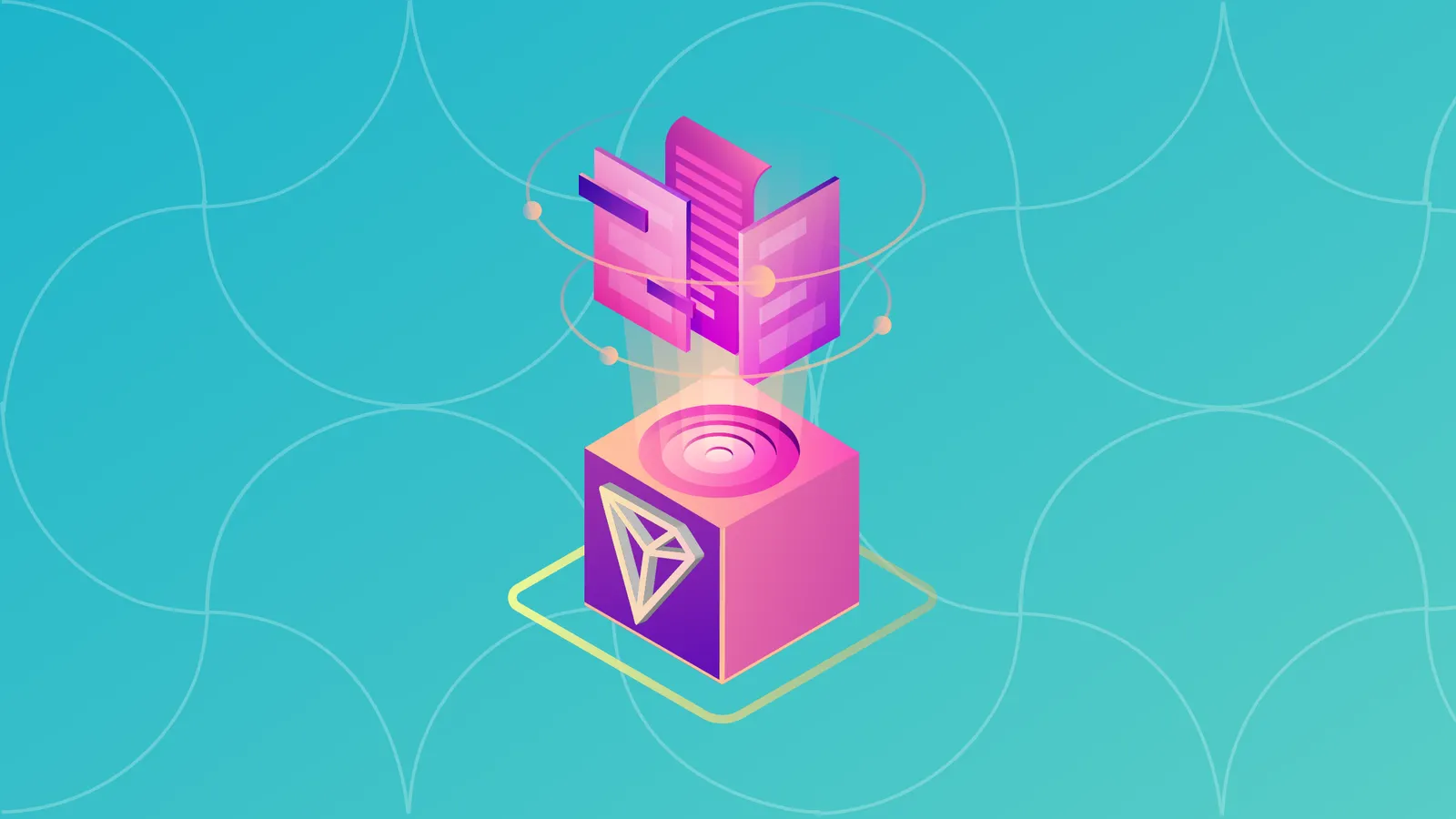In brief
- Smart contracts are contracts expressed as code, which carry out instructions when certain conditions are met.
- Executing a Tron smart contract is technically free, although users need to spend energy and bandwidth.
- If users run out of energy and bandwidth, they’ll need to burn TRX to pay for the resources required to execute the smart contract.
A smart contract is a digital agreement in the form of computer code that’s programmed to execute specific actions automatically based on certain predetermined conditions.
By linking multiple smart contracts together, it’s possible to create decentralized applications, or dapps—computer programs that run atop a network of nodes rather than on a single device.
Smart contracts on Tron
The Tron blockchain can run smart contracts, which you can use for everything from securely transferring funds and storing digital identity data to inventory tracking or automating payments. The primary use of Tron smart contracts is to build and host decentralized entertainment apps and content.
Although smart contracts on the Tron blockchain function similarly to smart contracts on Ethereum—both are built using variants of the same programming language––there are several unique aspects to how Tron smart contracts work.
Did you know?
As of March 2022, smart contracts made up more than 60% of all transactions on the Tron blockchain, according to Tronscan.
How do you create and deploy a smart contract on the Tron network?
Tron smart contracts are written using a fork of Solidity, the smart contract programming language used by Ethereum. Tron has a native standard for implementing smart contracts called TRC-20, which is compatible with Ethereum’s ERC-20 token standard—meaning that you can migrate smart contracts on Ethereum to Tron directly or with minor modifications.
TRC-20 tokens are issued using the Tron Virtual Machine (TVM), which hosts its own operating system that can generate smart contracts to run on Tron’s network.
How much does it cost to execute Tron smart contracts?
You need a combination of bandwidth points and energy to deploy and run Tron smart contracts—and it’s important that you make sure to have enough of both.
You can’t execute a Tron smart contract without consuming bandwidth points and energy.
What are bandwidth and energy?
Blockchains usually charge a transaction fee, known as a gas fee, to execute and compile a smart contract. But transactions on the Tron network are calculated based on energy, bandwidth, and transaction type.
Bandwidth points are like fuel that power Tron network transactions. Every Tron account gets 1,500 free bandwidth points every 24 hours, and users can earn more by agreeing to freeze some of their TRX for a minimum of three days.
Energy is the computer processing power or CPU consumed when users build or operate a smart contract on Tron. Users can only obtain energy by freezing tokens either through their own account or having another account freeze on their behalf.
What happens if you don’t have enough energy and bandwidth?
If you run out of energy and bandwidth points, you’ll have to pay to execute the transaction by burning the requisite amount of TRX.
So be smart and don’t run out—if you also don’t have enough TRX to execute a smart contract, any energy and bandwidth you’ve already expended is not refundable.
Brought to you by Tron
Learn More about partnering with Decrypt.


